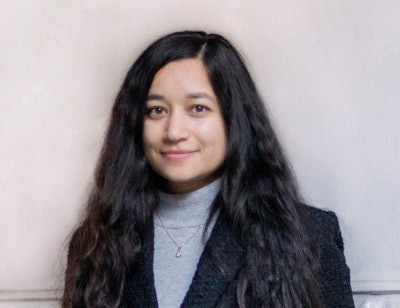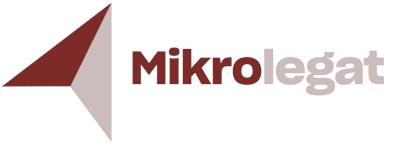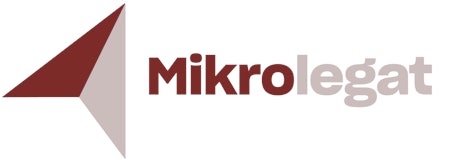Micro grant
Are you students in higher education or pupils in upper secondary education? Then you can apply for a Microgrant of up to DKK 50,000.
Kickstart Micro grant
Are you students in a vocational education program? Then you can apply for a Kickstart Microgrant of up to DKK 50,000, including a minimum of three months of mentoring support
Why apply for a Micro Grant?
Financial support
- The Micro Grant is probably your first opportunity to obtain financial support for the development of your idea or for the development of your newly started company
- The Micro Grant can be just the right motivation and the pat on the back that makes your idea come true
- The Micro Grant is what is called ‘soft funding’. This means that the grant is not a loan and therefore does not have to be repaid
Feedback from evaluation committee
- You receive feedback from the evaluation committee regardless of whether you receive a grant or not
- You can use feedback from the evaluation committee for further development of your idea/company or to improve a possible new application
- The evaluation committtee consists of succesful entrepreneurs, leading business profiles and investors, all of whom have extensive knowledge of starting and running a business
Exposure
- Micro Grant recipients will be published on Micro Grant’s Wall of Fame. As a grant recipient, you will be visible here for e.g., investors, press and The Danish Foundation for Entrepreneurship’s other business partners
- Micro Grant recipients have the possibility to be exposed on Micro Grant’s social media
- As a Micro Grant recipient, you can be selected as a case in various contexts and gain exposure that way
The Micro Grant
An application consists of three elements:
- A written answer to a number of questions about your idea/startup
- A budget that shows what you will use the grant for
- A video pitch where the team explains and possibly visually shows the idea
- Without CVR number, you can apply for a Micro Grant of up to DKK 25,000
- With CVR number, you can apply for a Micro Grant of up to DKK 50,000
- This Micro Grant requires 25% self-financing (read more about this under “frequently asked questions”)
You can apply for and receive a total of two grants for the same idea. First one Micro Grant without a CVR number and then one Micro Grant with a CVR number
- Students at youth education
- Students at higher education
- Ph.D. students
- Newly graduated within the last three months (at application deadline)
Furthermore, it is a requirement that:
- Applicant (Co-founder 1) and minimum half of the founding team must be students or recent graduates within the last 3 months
- All students must be a full-time student enrolled in a Danish educational institution (i.e., not just one semester)
- All newly graduated must have been enrolled in a full-time study in a Danish education institution (i.e.) not just one semester)
- Non-students are allowed in the team but both the applicant (Co-founder 1) and at least half of the founding team (both with and without CVR number) must be students or recent graduates within the last 3 months
- Applicant (Co-founder 1) must be at least 18 years old
- If your idea or startup previously has applied/received a Micro Grant, this must be stated in the application
Besides the above points, applicants who apply with at CVR number must also follow:
- Applicant (Co-founder 1) must be a co-founder of the company (in the CVR)
- CVR number must be created for the startup that is applying for the grant
- CVR number must be created within the last 12 months
- Company/CVR number must not have had a total turnover of more than DKK 50,000 in total
The Micro Grant must be used for development. That means for development of your idea or for development of your newly started company.
Examples:
- Components for development of prototype(s)
- Professional help to develop prototype
- Pretotyping, pilot tests and test of prototype(s)
- Counseling (e.g., drawing up ownership agreements, advice from an accountant, etc.)
- Patent application, trademark registration or design protection
- Market research
The Micro Grant CANNOT be used for operation such as
- Establishment of ApS
- Payment of VAT/taxes
- Rent of premises
- Purchase of inventory
- Purchase of computers/phones, office furniture, etc.
- Travel and hotel accommodation
- Salary for team members
- General entrepreneurial advice
- Memberships of entrepreneurial associations
- Courses for upskilling
- Activities/expenses in relation to competitions
- Expenses already incurred at the time of application
You can apply for a Micro Grant four times a year.
Application deadlines:
- February 15th, 23.59
- May 15th, 23.59
- September 15th, 23.59
- November 15th, 23.59
Evaluation of applications
Step 1: Evaluation committee
All applications that meet the formal requirements are sent to a committee consisting of two employees from The Danish Foundation for Entrepreneurship and 3-4 external committee members which consists of succesful entrepreneurs, leading business profiles and investors, all of whom have extensive knowledge of starting and running a business.
Step 2: Evaluation meeting
The evaluation committee meets, and based on the written assessments, all applications are discussed and feedback is written down. It is at this meeting the final decision on who will receive a grant is made.
See the evaluation committee here.
We cannot in advance say who from the committee will assess your application.
Trade secrets are e.g., information about your invention which is not widely known or readily available even to people with industry knowledge. For something to be considered a trade secret, it must have commercial value because it is a secret. We encourage you not to include trade secrets (e.g., technical details about a new invention) in the application and to only treat trade secrets on a general level.
It is very rare that the details in trade secrets are decisive for whether the grant is awarded or not. Furthermore, the members of the evaluation committee – under the auspices of The Danish Foundation for Entrepreneurship and under their own authority – review an incredible amount of business plans on an annual basis and many of the business plans are similar. Therefore, it can cause problems for the members if trade secrets are described in detail.
We recommend that you apply a password for the video pitch if you are working with an idea for which you want to apply for a patent.
It will take approximately 4-6 weeks from the application deadline until you receive an answer. All applicants receive a response via email.
“Overall Micro Grant has made an enormous difference on both my personal and DIMAICHA’s growth including building confidence to aim higher, improving pitching skills, researching and product development, making prototypes, testing and market research”
- Manisha, founder of DIMAICHA
DIMAICHA recieved a Micro Grant in 2022

Micro Grant application process
Read here how the application process happens and what an application consists of.
1. Terms and conditions
As an applicant you must read and accept Micro Grant’s terms and conditions. One condition i.e. is that you answer questionnaires from The Danish Foundation for Entrepreneurship. When you have accepted the formal terms and conditions, you will be directed to the application itself. You can always save what you entered along the way and return to the application.
2. Information about team and startup
After you have accepted terms and conditions, you must provide some information about your idea/startup and your team. Note: Co-founder 1 is the primary applicant and will be your contact person regarding Micro Grant. This person in the team must be a fulltime student (or newly graduated within 3 months after the application deadline) and must appear as a co-founder on the CVR number (if you have it).
3. Written application
Here you must answer a series of questions about your idea/startup.
- Idea and business model
- Market and competition
- What you have already achieved
- IP-rights
- Sustainability and possible use of the Sustainable Development Goals
- Team
- Next step and use of Micro Grant
Download all questions in the application here (pdf)
Download all questions in the application here (word)
Find guidance for the written application here
4. Budget
Download the budget form, fill out which posts you wish Micro Grant to support and upload the file in the application. It is important that the support is used for activities which moves the idea or company noticeably closer to the market, growth, job creation etc. This point is included as part of the evaluation of the application.
For applications with a CVR number, the 25% co-financing must also be included in the budget form. The use of the co-financing is not covered by Micro Grant’s rules regarding what the Micro Grant may be used for.
Find the excel sheet and guidance for the budget form here
5. Video pitch
Your video pitch is an important part of the application. It is here the evaluation committee has the opportunity to see who the team behind the idea is and here you have the possibility to show a possible early prototype or an illustrative display of your idea/product/service. We recommend that everyone in the team is represented in the video.
The video must be uploaded to YouTube and the link must be attached in the application.
The video pitch must be a maximum of 4 minutes.
Find guidance for the video pitch here
6. Submit application
When you get to this point, it is time to find the champagne glasses and remember to congratulate each other that you can now tick off another achievement in your entrepreneurial journey. Sit back and await to hear from Micro Grant.
7. Response from Micro Grant and questionnaire
You can expect to receive a response to your application after 4-6 weeks. You will receive a reply via email. It is Co-founder 1 who will receive the email from Micro Grant
If you have received the grant, you must sign a grant commitment and send a mail back. Then you have 3 months to use the grant. If you unfortunately are not awarded the grant, you can always apply again.
All applicants receive response and feedback from the evaluation committee.
We will also ask you to please answer the questionnaire sent to everyone in the team. Note: 6 questionnaires are sent out over 3 years. Data from the questionnaires are collected for the purpose of research into the effect of Micro Grants which forms the basis for more Micro Grants to be awarded in the future. We greatly appreciate your help.
Frequently asked questions
The Danish Foundation for Entrepreneurship pays your invoice i.e., the grant is not transferred as a cash amount to a bank account. Below, you can read how the procedure is:
- Your budget is approved by The Danish Foundation for Entrepreneurship
- Hereafter, you can then start ordering services and products from suppliers
- The supplier’s invoice must be issued to you/your startup with the grant number clearly stated
- You approve the invoice (price and service) and then send the invoice to The Danish Foundation for Entrepreneurship
- Then the invoice is paid by The Danish Foundation for Entrepreneurship
The service must be within the framework for which the grant is given. If you want to change the budget after signing the contract, the new budget must be approved by The Danish Foundation for Entrepreneurship.
So that the administration of the grant does not become extensive, there must be no more than 4 invoices. If there are several services from one supplier, these should be combined on one invoice to ease administration.
If a service or products are purchased outside of Europe, you must pay these invoices yourself and the amount will then be paid to you against documentation.
If you are applying for a Micro Grant with CVR number, you must add 25% self-financing on top of the amount applied for. That means that if you receive the grant, you can buy services for the applied for amount plus self-financing of 25%. If you i.e. have applied for DKK 50,000, you can receive offers and buy services for DKK 62,500 including VAT in total. When the grant has been used, the 25% (in this example DKK 12,500) must be paid back to The Danish Foundation for Entrepreneurship. Self-financing is to ensure that you are dedicated and involved and invest money in the company.
When all invoices have been submitted and paid by The Danish Foundation for Entrepreneurship, the Danish Foundation for Entrepreneurship sends a charge of the 25% self-financing to the grant recipiant, which your startup must pay yourself.
The grant recipient may themselves pay the supplier for services used and paid for. In this case, the grant recipient must send an email with documentation in the form of copies of invoices and documentation that they have been paid.
Yes you have to pay tax of the Micro Grant regardless of whether you have a CVR number or not. The Danish Foundation for Entrepreneurship report all grants as B income to Skat (The Danish Tax Agency).
Without CVR number: The primary applicant (Co-founder 1) is taxed via their CPR number.
To calculate B tax you must start by dedicting AM contribution of 8% from B income (in this case the grant). Tax is then calculated by using your deduction percentage on the amount that remains after deducting the AM contribution.
In the end, you add the result with the 8% AM contribution. Then you have the amount you have to pay in B tax.
If you receive a Micro Grant without a CVR number, you can receive it tax free. This does however require that the Micro Grant is conditional on being used for “coverage of costs for scientific works”, cf. § 7 K of the law of assessment (ligningsloven).
If you receive a Micro Grant from the Danish Foundation for Entrepreneurship, you must indicate when receiving the grant whether you wish to receive it under the law of assessment § 7 (ligningsloven).
The rules for receiving a grant under the law of assessment § 7 (ligningsloven):
- The grant is conditional – claused – for the specific purpose in the application
- If this condition is not fulfilled, the grant cannot be covered by the provision and the Danish Foundation for Entrepreneurship will therefore submit the grant to the Danish tax system (Skat) as B income
- If § 7 K of the law of assessment applies, the Danish Foundation for Entrepreneurship will submit in the reporting for the Danish tax system (skat) that the grant is covered by the law § 7 K
- The grant recipient is fully responsible for documenting to the Danish tax authorities that the amount received is used to cover costs corresponding to the purpose according to the application. The Danish Foundation for Entrepreneurship encourages the recipient to read more about this in the Legal Guidance (Juridisk Vejledning) on skat.dk where grants for scientific work are described in more detail in section C.A.6.5.3 Studierejselegater og legater til videnskabeligt arbejde – skat.dk and if you have any questions, contact the Tax Agency
With CVR number: The grant recipient has full VAT and tax deductions according to the general applicable rules when the invoices are issued to the grant recipient’s company.
The amount you receive for purchasing services includes VAT (25%).
Data from the questionnaires we send you are collected for the purpose of analysis and research into the effect of Micro Grants. The data collection is of great importance to the continues existence of the Micro Grant initiative. Your answers also contribute to very important knowledge about young entrepreneurs in Denmark and we use this knowledge to improve the conditions for young entrepreneurs in Denmark. 6 questionnaires are sent out over 3 years.
We need your CPR number to be able to follow the results of the data collection over a longer period of time. We only collect this information for scientific work and your anonymity is completely guaranteed. We take good care of your personal data and do not pass it in to third parties.
You can apply for and receive a total of two grants for the same idea. First one Micro Grant without CVR number and then one Micro Grant with CVR number.
If your application is rejected, you can apply again.
The grant must be used no later than 3 months after receiving the commitment by email. The date is in the contract you sign with The Danish Foundation for Entrepreneurship.
No. The company must be established in Denmark. However, we do accept that you have expenses from foreign suppliers.
If you receive a grant for a startup with CVR number, you must sign a declaration about de minimis support as Micro Grant is considered as state aid under the de minimis regulation.
According to the de minimis regulation, state aid is permitted as long as the total de minimis aid to a single company does not exceed 200,000 euros, corresponding to approximately DKK 1.5 million, over a period of 3 financial years. This means that your startup must not receive any other state aid, which therefore in total (including the Micro Grant) exceeds an amount of approximately DKK 1.5 million within a period of 3 financial years.
We support a wide range of idea types and applicants from different educational backgrounds in order to give all students and pupils the opportunity to gain experience with entrepreneurship.

Questions
Do you have questions about how to apply for a Micro Grant, call or write:
Tilde Reffstrup, Chefkonsulent
Tlf: 23 26 96 75
Mail: tilde@ffefonden.dk



